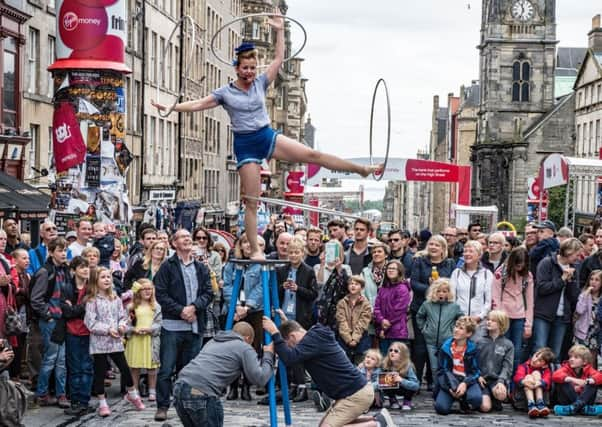Brian Ferguson: The latest festivals funding saga will run and run


Covering an announcement of a major funding deal for the festivals should have been relatively straightforward. It was anything but. This summer has long been seen as a pivotal one, due to the 70th anniversary of the Edinburgh International Festival, the Fringe and the film festival. A landmark report into the future of the festivals, published more than two years ago, set out a series of clear recommendations aimed at ensuring Edinburgh remained the “undisputed world leader as a festival city”. Chief among these were a “spur to action” to ensure that “Scotland, the city and its festivals do not rest on their laurels and become complacent”.
There was a stark warning of the impact of a predicted “fiscal cliff” and that the festivals were at risk of “relegation” from the premier division of events if funding was not maintained. The key challenge was clear: “Large scale, radical solutions are now needed to replace eroding public funding and these must include potential alternative funding models.”
Advertisement
Hide AdAdvertisement
Hide AdProgress since then has not exactly been smooth. There has been little support from the tourism sector for any kind of bed tax or transient visitor levy, despite repeated pleas from the city council. Hopes of such a scheme being included in the £1.1 billion Edinburgh City Region Deal were scuppered when it was finally signed off in July after months of delays and behind-the-scenes wrangling. While it did include £20 million from the UK and Scottish governments for a new concert hall in the New Town, the festivals were left empty- handed before their big birthday.
I’m told there were fairly frantic negotiations between the council, the government and the festivals before a deal was struck in the final week of the festivals and news of an additional £10m – to be shared between the council and government over the next five years – finally emerged.
However, there was a suspiciously lacking amount of detail in the programme, which no one involved seemed particularly keen to discuss. How this will be handled and who it will be allocated to will certainly be of interest to many of those involved in the festivals. There is little clarity in the two announcements made by the council and the government, although there is clearly an expectation of private sector involvement in the 70th anniversary “legacy” fund. What is not clear is whether festivals will need to provide proof of commercial backing for a project before it can tap into the new fund.
We will have to wait to see if the private sector finally comes up with its own funding mechanism to match the money that the government and the council have put on the table. Perhaps most important of all is whether this new fund will end up shoring up other cuts which may be coming down the line.